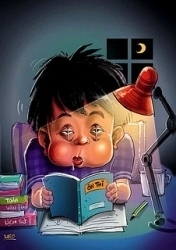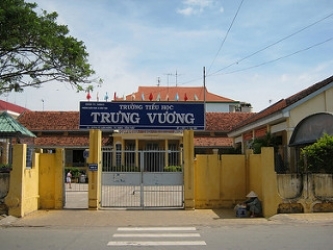chemistry (n)
/ˈkɛməstri/
the scientific study of the structure of substances and the way they react with other substances

IT (n)
/ˌaɪ ˈti/
the study and use of electronic processes and equipment to store and send information of all kinds, including words, pictures, and numbers

geography (n)
/dʒiˈɑɡrəfi/
the scientific study of the earth's surface, physical features, divisions, products, population, etc.

fail (v)
/feɪl/
to not pass a test or an exam; to decide that someone or something has not passed a test or an exam

revise (v)
/rɪˈvaɪz/
to look at or consider again an idea, piece of writing, etc. in order to correct or improve it

primary school (n)
/ˈpraɪ.mə.ri skuːl/
a school for children from the ages of about five to nine, or an elementary school

degree (n)
/dɪˈɡri/
the qualification obtained by students who successfully complete a university or college course

playground (n)
/ˈpleɪɡraʊnd/
an outdoor area where children can play, especially at a school or in a park

uniform (n)
/ˈju·nəˌfɔrm/
the special set of clothes worn by all members of an organization or a group at work, or by children at school




































 Hãy đăng ký thành viên và đăng nhập để sử dụng chức năng này!
Hãy đăng ký thành viên và đăng nhập để sử dụng chức năng này!
Bình luận